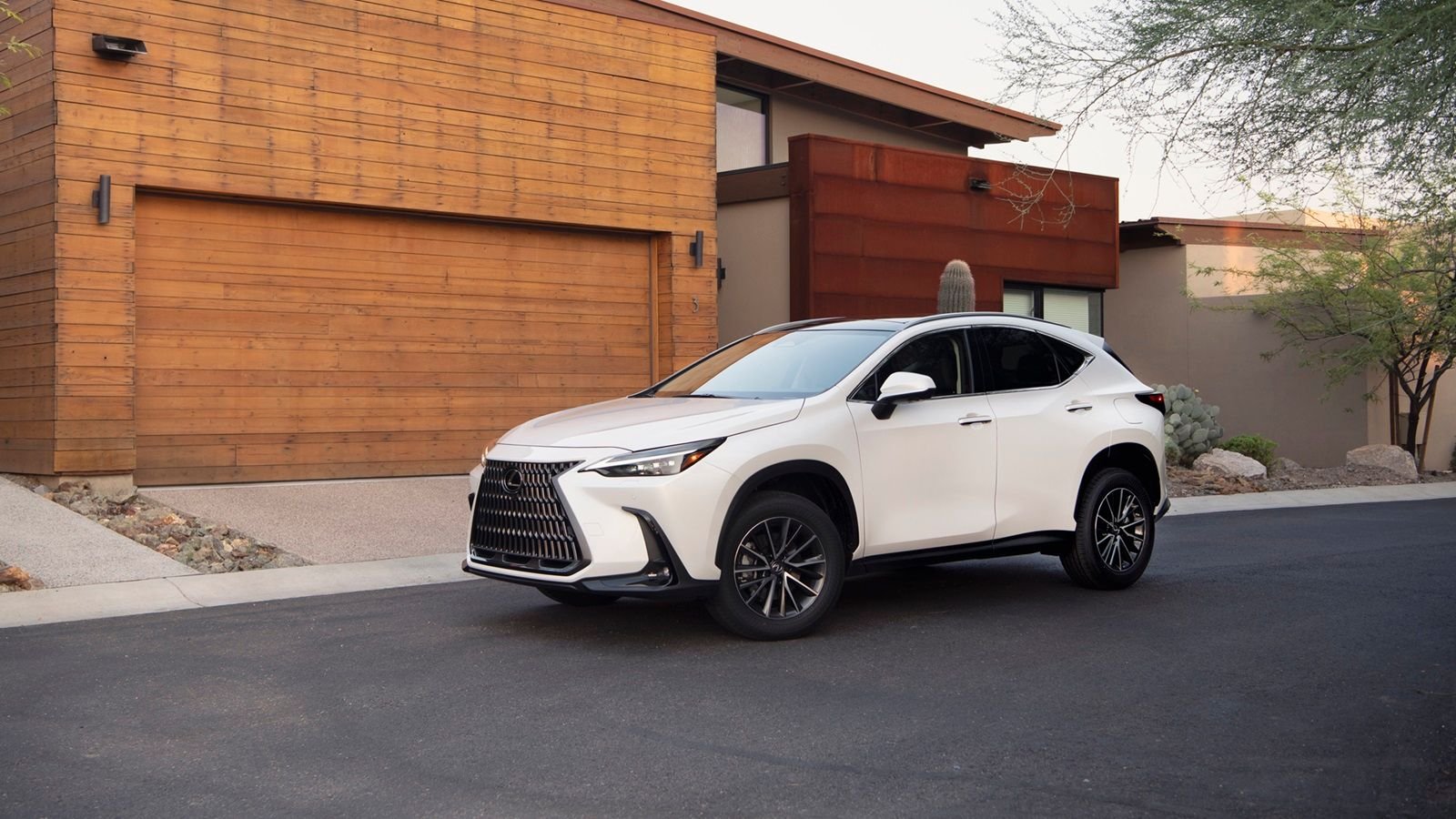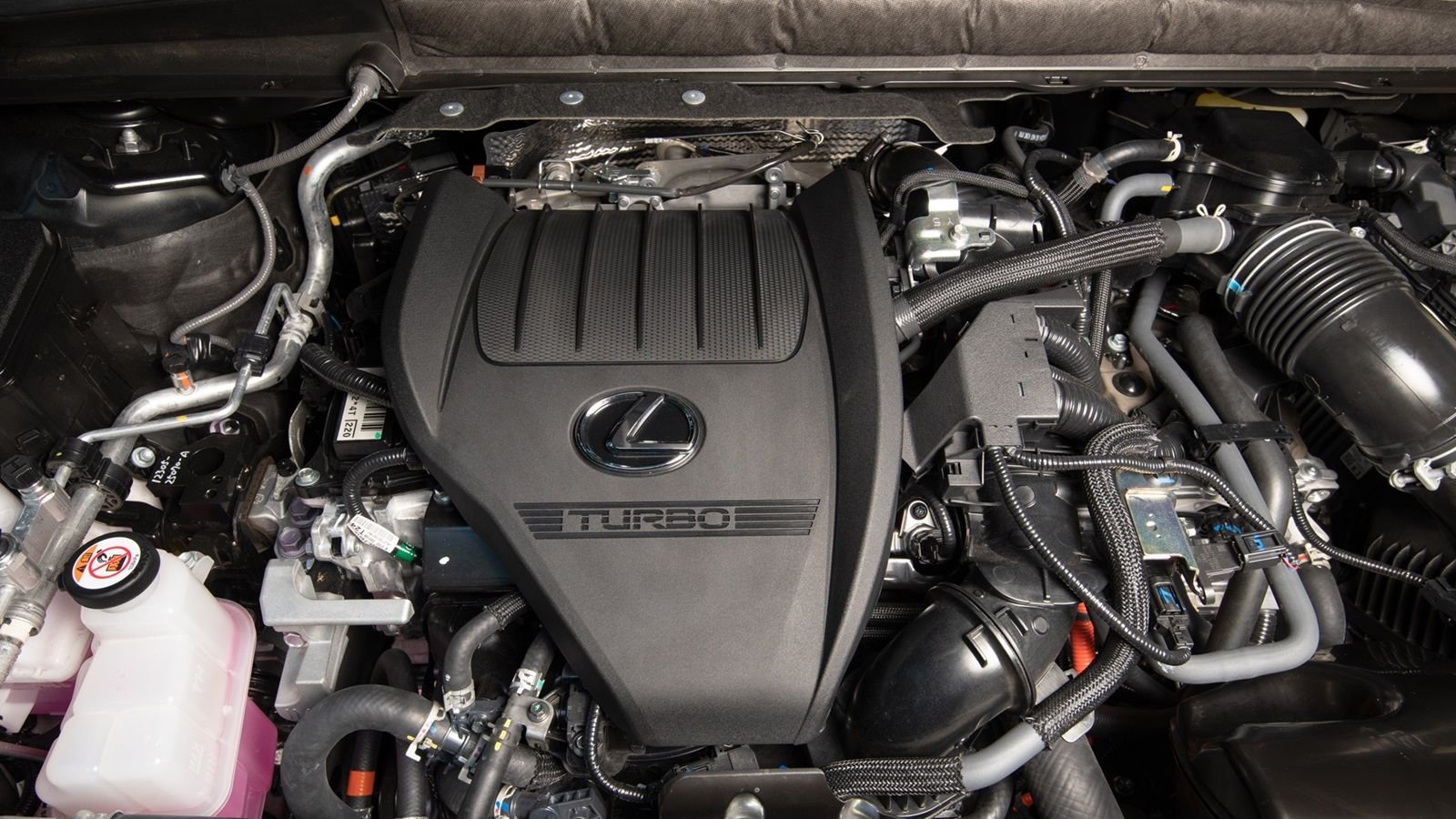Every 2024-2025 Lexus SUV Engine Explained!
If you're in the market for a new Lexus SUV, here's a roadmap of Lexus engines to easily find which one powers which model.


















Intro
The Lexus crossover and SUV lineup is vast. There are eight different model lines and numerous trim levels within each. And propelling all these different variations are eight different engines. And many of these engines have the same displacement but with or without turbos and electric motors. It can be overwhelmingly confusing to try to keep it all straight. And that is what we are here to help you with today. We reviewed the Lexus crossover and SUV lineup and listed the specs for each engine and where they can be found. We did not include the all-electric Lexus RZ. Using this guide will help you navigate the complex world of Lexus engine offerings. Do you have a favorite in the lineup? We would love to hear from you about which one it is and why.
1. 2.0L In-line 4-Cylinder Hybrid
The least expensive Lexus has the smallest and least powerful engine. No surprise there. But what might surprise you is how efficient the engine is. A front-wheel drive UX 300h has a combined EPA estimate of 43 mpg. Not too shabby. The engine is a 16-valve dual overhead cam with Variable Valve Timing on the intake and exhaust side. That is combined with a high-output, permanent-magnet, electric-drive motor with EV mode. It is enough to scoot the crossover to 60 mph in about 8 seconds.
Power
- 196 / 139 – Horsepower/Torque in all UX Models
Aspiration
- Natural
Applications
- All UX models
2. 2.5L In-line 4-Cylinder
The Lexus NX is a step larger than the entry-level UX and the engine that powers the NX gets a corresponding step up. Under the hood is a 2.5L 4-cylinder engine. This dual-cam, 16-valve unit is enhanced with continuously Variable Valve Timing with intelligence. The same engine is used in the front-wheel drive and all-wheel drive models.
Power
- 203 / 184 – Horsepower/Torque in NX 250, NX 250 AWD
Aspiration
- Natural
Applications
- NX 250
- NX 250 AWD
3. 2.5L In-line 4-Cylinder Hybrid
You can stay in the NX family but step up to a more powerful engine if you go with one of the 350h models. The hybrid assist adds nearly 20 percent more power compared to the non-hybrid 2.5L. But this engine also sees duty in the RX 350h and there it produces a touch more horsepower and significantly more torque. The hybrid adds two electric motors to the mix as well as a third rear-mounted electric motor to power those rear wheels.
Power
- 240 / 167 – Horsepower/Torque in NX 350h AWD
- 246 / 233 – Horsepower/Torque in RX 350h models
Aspiration
- Natural
Applications
- NX 350h
- RX 350h
4. 2.5L In-line 4-Cylinder Plug-in Hybrid
The NX and RX models get yet another engine choice. You can go full plug-in hybrid if you want. Unlike in the regular hybrid the power output for the plug-in hybrid is the same in both the NX and RX. They also both come with the same 37-mile all-electric driving range estimate. And when you are not hypermiling, you can scoot to 60 mph in about 6 seconds.
Power
- 304 / 176 – Horsepower/Torque in NX 450h+ AWD/Sport Handling AWD, RX 450h+
Aspiration
- Natural
Applications
- NX 450h+ AWD/Sport Handling AWD
- RX 450h+
5. 2.4L In-line 4-Cylinder Turbo
This is the most widely available engine in the Lexus crossover and SUV lineup. You can get this in NX, RX and TX models. And no matter what model it is installed in, the output is the same. This is the perfect combination of power and efficiency for many people, which is why it is so popular.
Power
- 275 / 317 – Horsepower/Torque in all applicable Lexus models
Aspiration
- Turbocharged
Applications
- NX 350 AWD
- NX 350 F Sport Handling AWD
- RX 350 all except ‘h’ models
- TX 350 all models
6. 2.4L In-line 4-Cylinder Turbo Hybrid
Combine hybrid technology with turbos and you start to make some real power. Start with the same basic 2.4L gasoline 4-cylinder and bolt up a turbo and add some electric motors. This engine combines the best of all worlds. It is the most powerful option in the RX lineup and is the engine of choice in the TX 500h F Sport Performance models.
Power
- 366 / 406 – Horsepower/Torque in all models
Aspiration
- Turbocharged
Applications
- RX 500h F Sport Performance
- TX 500h all models
7. 3.4L Twin-Turbo V6
This engine is reserved for the big boys. It is the only available engine throughout the GX and LX lineup. Of course, the LX being the Lexus SUV flagship, it is tuned for more power in that application. But the basic architecture is the same in the GX and LX. It is a four-cam, four valves per cylinder V6 with a pair of turbochargers.
Power
- 349 / 479 – Horsepower/Torque in all GX 550 models
- 409 / 479 – Horsepower/Torque in all LX 600 models
Aspiration
- Turbocharged
Applications
- GX 550 all models
- LX 600 all models
8. 3.5L V6 Plug-in Hybrid
The LX 600 retains the horsepower crown in the Lexus lineup but not by very much. The plug-in hybrid that comes in the TX 550h+ is a real powerhouse. Unfortunately, Lexus is a bit secretive when it comes to quoting the torque figures for this engine. Upfront the gas engine provides 247 foot-pounds and that is augmented by an electric motor that kicks in 199 more. In the back there is another electric motor that provided 124 foot-pounds of twist. It is enough to propel the 3-row, 5,400-pound SUV to 60 mph in less than 6 seconds.
Power
- 404 / 247+199 front, 124 rear – Horsepower/Torque in TX 550h+
Aspiration
- Natural
Applications
- TX 550h+
Images: Lexus
